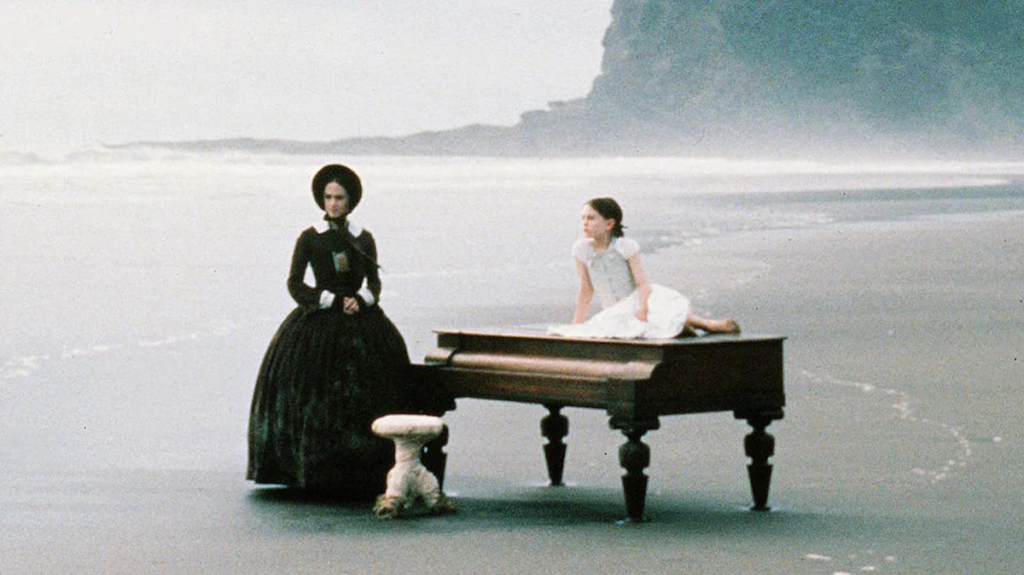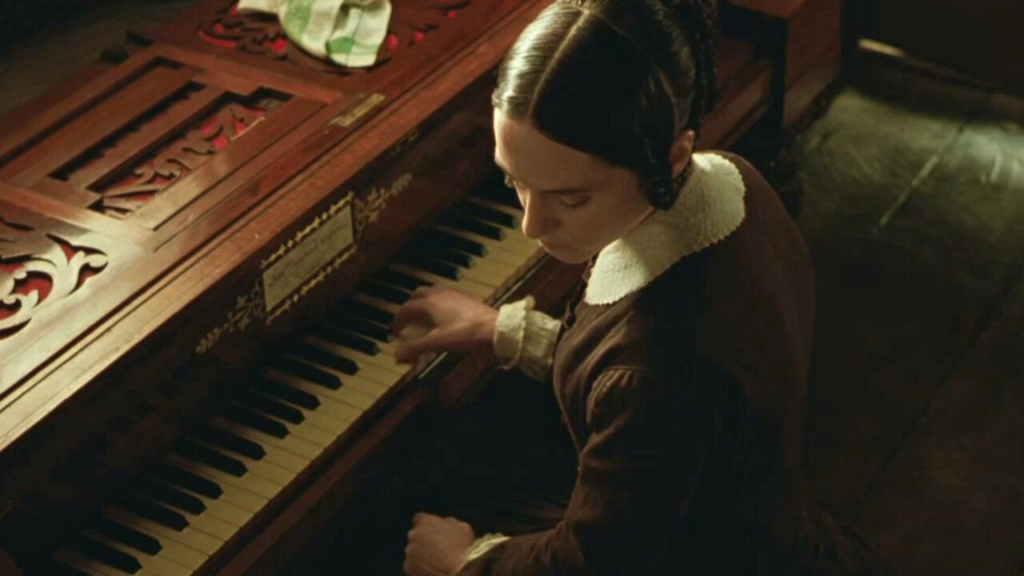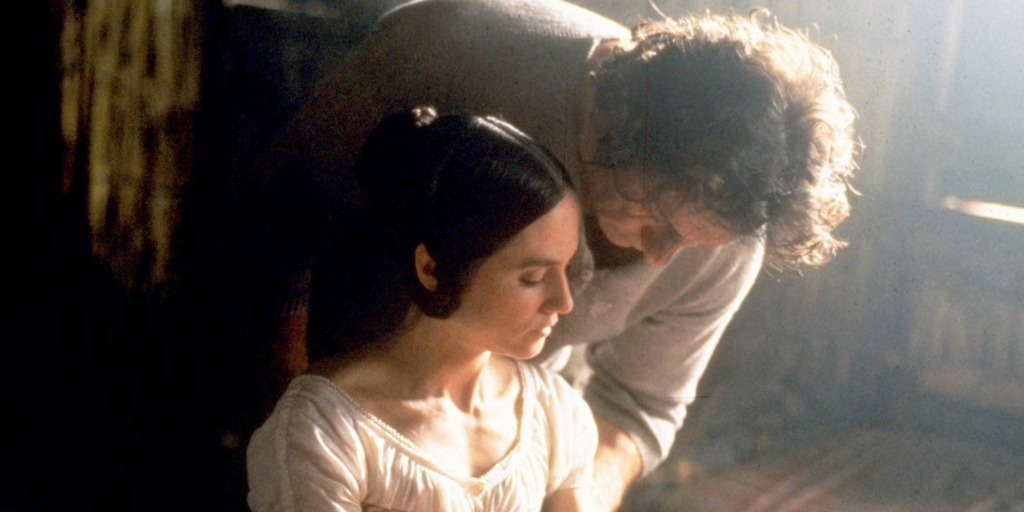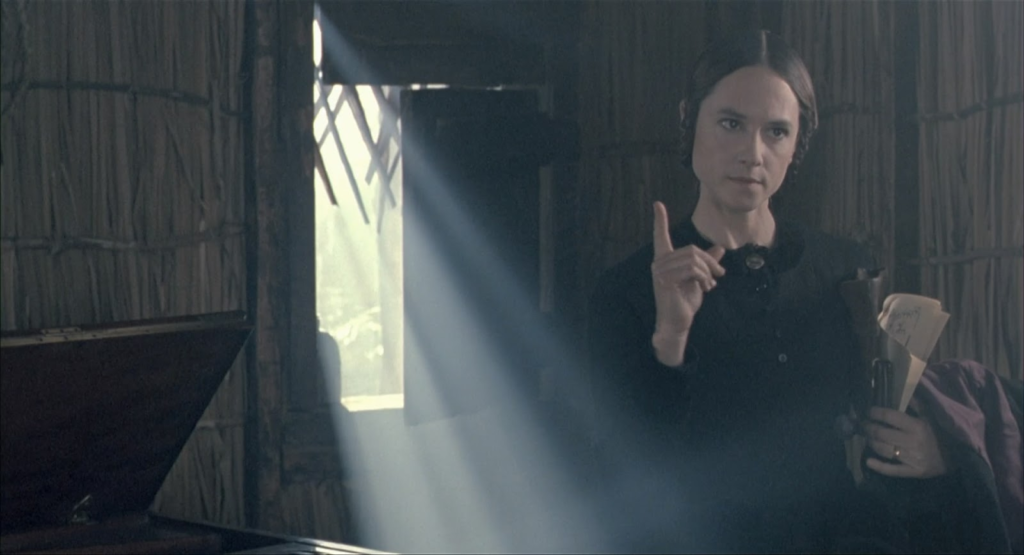“At night! I think of my piano in its ocean grave, and sometimes of myself floating above it. Down there, everything is so still and silent that it lulls me to sleep. It is a weird lullaby and so it is; it is mine.”
Ada, The Piano (1993)

I always thought of my life as someone constantly drowning.
My empathetic nature, neurodivergence, constant obsessions, and infatuation with everything artistic have led me to live a thrill-seeking, hectic life that feels ridiculous to describe to anyone, even the closest of the closest people in my life.
I told a close friend of Native American roots that I was born on a stormy night, on January 22nd, 1988, and she told me that this explained why I was so obsessed with the ocean. The sea calls out to me now and then, willing me to succumb to its entirety so that the noise inside of me would be reduced to a hush.
I’m a sea girl but I’m not that talented of a swimmer. I have lived in the same coastal city since I was born. I’ve briefly traveled to work and live in the capital city of my country, fell in love with someone on the same intellectual level, decided to get married there, then chickened at the last moment, returned to my hometown, feeling the sea calling out to me, whispering in my ears all the words I don’t want to hear.
I have been writing since I was 9. But my writing matured and branched out, usurping every other aspect of my life like Aerys II the Mad King when I was in my teens. I fell in love with a classmate, hard and rapidly, rolling them around like cigarette paper while dating two guys. My poetic self wanted to constantly plunge me into this chaotic mess of feelings, this love triangle felt more like a necessity for my artistic expression. I fed on it like some people munched on burgers or consumed alcohol. The feeling was my drug. I craved feelings to write. I sought dangerous, crooked routes and paths to untrodden lands, barely made it out of some alive, bringing with me piles and piles of refined, raw, and scraped at the edges feelings. They would all be stored inside of me, ready to burst at any hint of danger or even something that triggers the trauma of falling again in love where my feelings usually cradle the whole relationship like a fetus in an abandoned, dark womb.
And every time I fell deep and hard in love, I immediately thought of the sea.
The sea in my town is wild and unruly. The Mediterranean Sea has never been known for its mild, calm shores and predictable nature. As a child, I remember my father teaching me how to swim and envying his outstanding swimming skills. One of my cousins could work her way through waves as high as mountains, the sea breeze and the gravitational pull of the tides never breaking her stride or slowing down her arms hitting the crests. But not me. My conservative father denied me access to professional swimming classes at a very early age. And I remained the sea girl of the shore, barely making it a few meters in. It wasn’t until I became an adult that I realized, I still don’t know how to swim well. I am not a skilled swimmer.
But if that’s the case, then why is the sea still a mystery to me? Why does it feel like my life has always been in a constant state of drowning? Is it because of my lack of proper swimming skills? Or is it because I chose a different swimming mode, the arts?
I don’t remember my first introduction to Ada (Holly Hunter), Jane Campion’s stunning female protagonist in her Palme d’Or winning, The Piano. As soon as I heard Michael Nyman’s “The Heart Asks Pleasure First,” I realized I would like to see the film where it is featured. I did, and it didn’t disappoint, because I felt this invisible connection shared with Ada. We were both living in a constant state of drowning.

When we first meet Ada, she is stranded on the shore with her belongings, her daughter, and her piano. A situation likely to make anyone lose their mind; but not Ada who finds a gap in the crate and slowly removes the lid to play on her piano. The magical sequence ends when a rush of seawater disrupts the momentary peace and wets her shoes. Ada’s daughter screams and she is forcefully pulled back into real life. That scene is key to the experience of Ada’s life. A passerby between two worlds caught between the pull and push of the tidal waves. The pull of the arts, like baby sirens calling out to her from deep, dark sea caves, where she can give in completely, become a mermaid, and submit to the divine existence of a world devoid of tiring daily interactions with humans, and the pull of the real world where she has a husband, a daughter, duties to attend to, and people with whom to interact.
Watching Ada in the film, I never felt less alone. Like her, I have always been consumed by the arts, letting them engulf me, swallow me, and immerse me so hard that there’s nothing left of me. I watch a film or read a poem and get so lost inside it that it’s hard to get out. Ada was a woman ravaged by the musical beast growing inside her, stronger as days went by, and it had to find the wildness in another human being, to contain that monstrosity of artistic expression held within her ribs. Her grip on the real world was carefully maintained through her daughter, her sole tool of communication in what other people understood best; words.
Ada had no words. Me, on the other hand, my life was filled with words, to the extent that sometimes, I wanted silence, a space devoid of any sound or verbal communication. And the sea, what better than a large body of water to drown all other sounds? I am a film critic, a podcaster, a writer, a translator, and a poet. I’ve been using the written word to express myself better than anything.
Ada has been using her piano to send messages to the world in a parallel life. When she was happy with her daughter and the untamed sailor who took her to play on her piano, the only person in this foreign land who seemed untethered by her eccentricities, she played “The Heart Asks Pleasure First,” when she mourns the loss of her piano, and wants it back from Baines, the man whose infatuation by her eerie, sexual presence increased day by day, “A Bed of Ferns” sounds in the distance and no one sees her play it. But the music sounds as if it is coming from deep inside her. When she is seducing Baines (Harvey Keitel), or rather he is seducing her, when the love is foaming inside of her like a sea, not calm and dead, windless and boring, but also not raging with storms and hidden fears, she plays “The Scent of Love.” When Baines rejects her and she is trapped in her home, she plays “Little Impulse,” then returns to Baines, throwing her wild storms into his arms, hoping she will find peace one day. When she learns of Baines leaving New Zealand she plays “The Mood that Passes Through You,” a haunting melody that expresses her mourning the end of her love story. When her husband cuts her finger and locks her in his house “I Clipped Your Wing” can be heard. Ada is bleeding on the keys, not with her freshly chopped-off finger but with her soul. I feel her with every molecule in my body, my fingers hurt me so bad I start crying, tears make the nerves in my face tingle. I imagine being her, trapped in a loveless marriage with a man unable to comprehend how I might love him, through my way of making him an object like my piano, and whenever he starts to work his way through an understandable idea of the act of making love, I visibly tense and die out. My body becomes a shell of a woman, with no feelings, no movement. I black out the incident and float out of my body to hover over myself, completely shutting off the experience. But with the man I discover and bring into my dark world, the only man who doesn’t chicken out, I am punished for it.
The way Ada looks at her piano, even when it’s right in front of her with yearning and an ache that never soothes, reminds me of my relationship with words, like the ones I’m writing right now. It’s either a hyperfocus where the whole world suddenly disappears and it’s me and the words written ahead, nothing else to be seen, felt, and heard or it’s a distraction, and my flow of thought keeps getting interrupted, and an article or a poem that can be written in an hour take days to finish. Sometimes I have to remind myself that the outside world exists and matters. Ada has always seemed consumed with her music, self-absorbed and narcissistic, a true artist. That’s what we do, we tend to ignore the outside world, loved ones, lovers, friends, obligations, birthday parties, formal dinners, and things that might take us somewhere else, a bigger place, a higher status. Ada got me, even when I failed and disappointed my loved ones over and over, just like she failed her daughter with neglect and forgetfulness amidst a passionate love affair with a man who matched her inner freak.

That day Ada played for Baines on the beach, as the ocean waves formed a background to her content, hypnotized face as “The Heart Asks Pleasure First” poured through her fingers on the keys, I knew something was wrong. The same thing happened with my freak, who was drawn into my world with my series of poems, words unlike any other, twisted and turned like serpents on a cloud, but also vicious and monstrous like a serial killer hiding in the forest, ready to slice any pathetic fool who trespasses their land. On that particular day when the freak in me found a match in a scarier freak, as the ocean bore witness to Ada and Baines, I went to walk by the sea. I asked if it was willing to swallow me. In that particular moment of love, I wanted it all to end. The mountain of emotions was too much to be contained within my soul and body. It had to stop. I wanted it to end.
Ada wanted it to end as well, and what’s better than the ocean that suddenly took her piano and sank it deep, deep down on her trip out of New Zealand with her new lover Baines and her daughter? Ada let herself swallowed by the ocean, deep down inside its mouth open agape, ready to engorge her whole, like a fly in a storm so frantic it broke all vines, leaves, branches, and roots around her. A clearing in the middle of the forest, all gone to snatch Ada from the misery of her life above earth, yet she chooses it.
As soon as my love with my freak ended, as brutally and wildly as it started, it began to dawn on me how I missed the sea. I watched it on a clear day when it looked as calm as a pond. It didn’t match the frustration in my head, the wildfires ignited inside me. My freakiness finally matched, my artistic obsessions finally finding a home, a name, making sense after a lifetime of misunderstandings, only for everything to crumble, my world to fall apart, the words getting madder and madder in my head, playing a heated boxing match against each other, the passion against the pain, the torment against the sadistic satisfaction, the rage against the heartache. The sea felt dead to me, beneath my persistence to finally do it and let it trap me within, imprisoning me within the body of water unable to let go.
Like Ada and all freaks consummated with art, like it’s a Catholic marriage, that binding sometimes leads to scary places. Some partners don’t understand the obsession, the lovers, the friends, the obsessives, for some, it is the families as well. So, like Ada, people tried to clip my wings, but fortunately for me it was temporary, my battle scars less visible than hers. But like her, I escaped. This normal life has not been meant for us, even if that meant throwing ourselves into the heart of a raging sea.
Unlike Ada, though, my will to live in the arms of my freak subsided, and so did his. But like all “cis men” freaks, they want to own the soul of the woman, trap her within their gated cages that dictate whether freakiness consolidates or counts for a worthy cause of survival. Not in my tale. The woman I was born as knew that the ocean was her destiny. And the sea, now that’s a tricky one, it never stays calm and could shift moods in a minute. That’s why salty people like us, sons and daughters of coastal cities know that a docile sea doesn’t mean anything, for it will wait until a swimmer has forgotten about it, letting down their guard, only to change stance and turn clear skies into greys, catapulting the oblivious weary snuggled in its false embrace.

I had to do something as Ada did, she drowned her piano. I was in this overwhelming, loving relationship with a fellow artistic freak. Both of us are narcissistic, consumed with respective artistic endeavors, both of us razors raised and arms arched, ready for a fight or a sexual night. None of our cliques wanted us in each other’s lives. So I lured him into the sea of metaphors and salty whispers, and as I fooled him into thinking the coiled rope of the piano was around my foot, it was actually around his, his foot stuck in the loop, he is dragged into the deep dark sea along with my piano, in that case, all the poetry I’ve written for and inspired by him. I get rid of them both, I watch them fall through the depths of the cold water.
Like Ada, for instance, I wish I could have gone down with them. Those poems and prose pieces would grow fins and gills and fight back, bringing back my prince of the underwater world. But this never happens. The Ariel in me has died and will not give up her voice for Prince Eric. I watch as two years of my life fall to the depths of the sea. I walk away not feeling triumphant but empty, like a vessel desperate for fluid to fill it to the brim.
In my heart, I buried my art down at the bottom of the sea, but in my mind, words are forming again, ready for another round of constant struggle with the will to live…in the arms of a raging ocean.





